Winston Churchill Leadership
Winston Churchill leadership style can be described as charismatic and transformational
so what are the top six traits of the Churchill leadership style?
You'll find our management and leadership skills e-books at the bottom of the page - enjoy the read
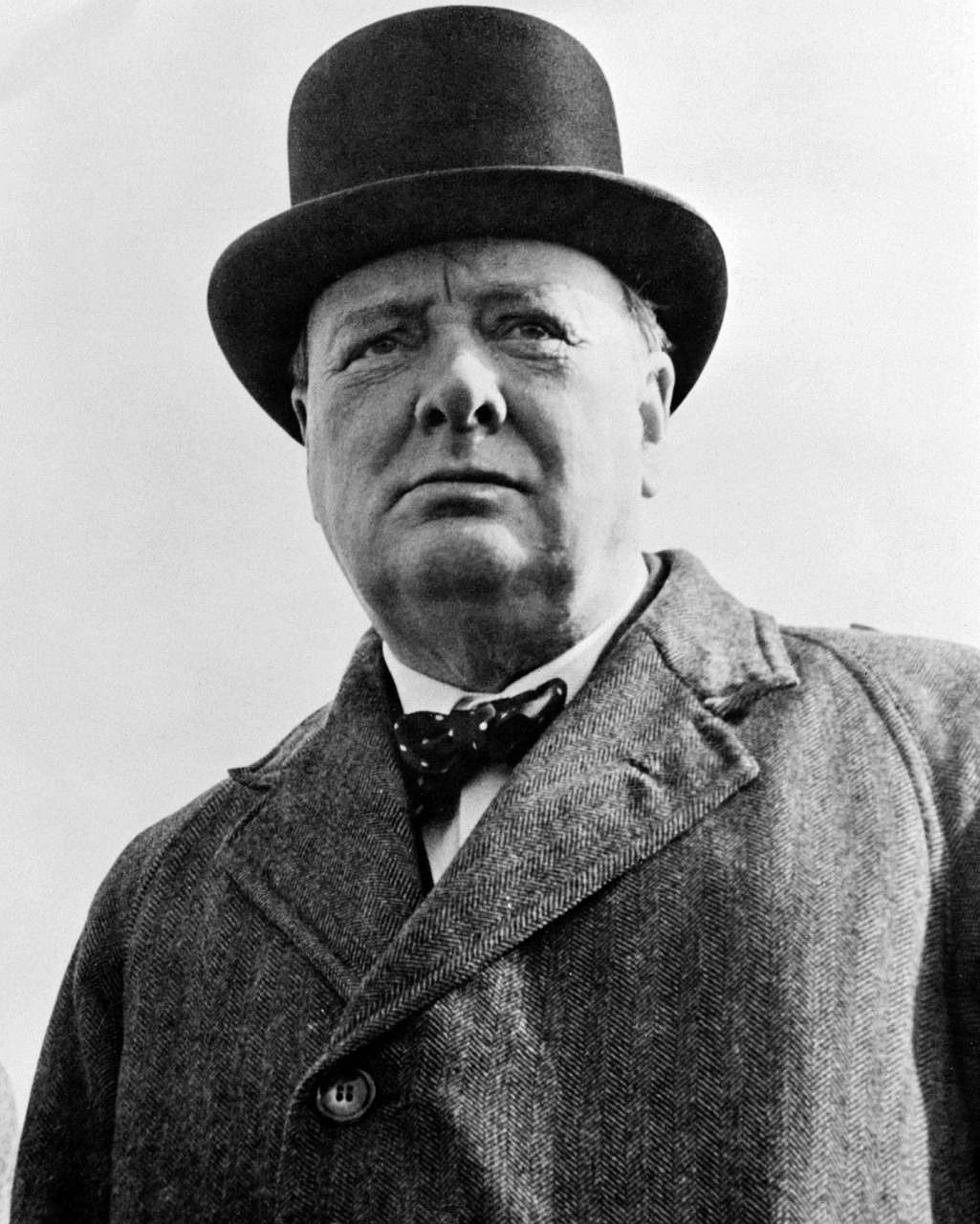
I was reading Churchill by Roy Jenkins, a great read, and picked up on a number of his characteristics, and behaviours displayed by other charismatic and transformational leaders whom I have worked with and sometimes for. "Winston Churchill leadership" should be a phrase to refer to often.
His charismatic leadership traits enabled him to adopt a vision and concentrate on the bigger picture, which enabled him to claim victory for his nation.
Churchill was able to perform his duties democratically and not as a totalitarian dictator
To be an exceptional leader you must have strong communication skills. When much of Britain was in despair, he excelled and through his inspirational speeches, encouraged people to have faith in him. By using a simple but precise language he was able to deliver effective speeches to his nation that all could understand, thus the people of Britain could identify with him and trust his vision. This enabled him to achieve the goals of the country and lead a democratic nation to victory over Nazi Germany.
Leaders using the Winston Churchill leadership traits generate an atmosphere of Trust and Co-operation
Much can be learned from his strong communication skills, innovation, and trustworthiness that made him one of the great leaders in history. He was and still is a true inspiration to others and his principles are still relevant today in our uncertain climate as they were more all those years ago. As Churchill said, “History will be kind to me as I intend to write it”.
6 Leadership Traits We Can Learn from Sir Winston Churchill Leadership
Communication
“What is the use of living, if it be not to strive for noble causes and to make this muddled world a better place for those who will live in it after we are gone? How else can we put ourselves in harmonious relation with the great verities and consolations of the infinite and the eternal?
And I avow my faith that we are marching towards better days. Humanity will not be cast down. We are going on swinging bravely forward along the grand high road and already behind the distant mountains is the promise of the sun.”
Winston Churchill leadership, Speech at Kinnaird Hall, Dundee, Scotland (1908)
The Big Three
1. Employee engagement
2. Customer service
3. Results and
profits.
These leaders
might get short term results, but over the long term, each of the big three are
negatively impacted. Simon Sinek talks about similar in his book the Infinite
Game.
 £29.99
£29.99 £24.99
£24.99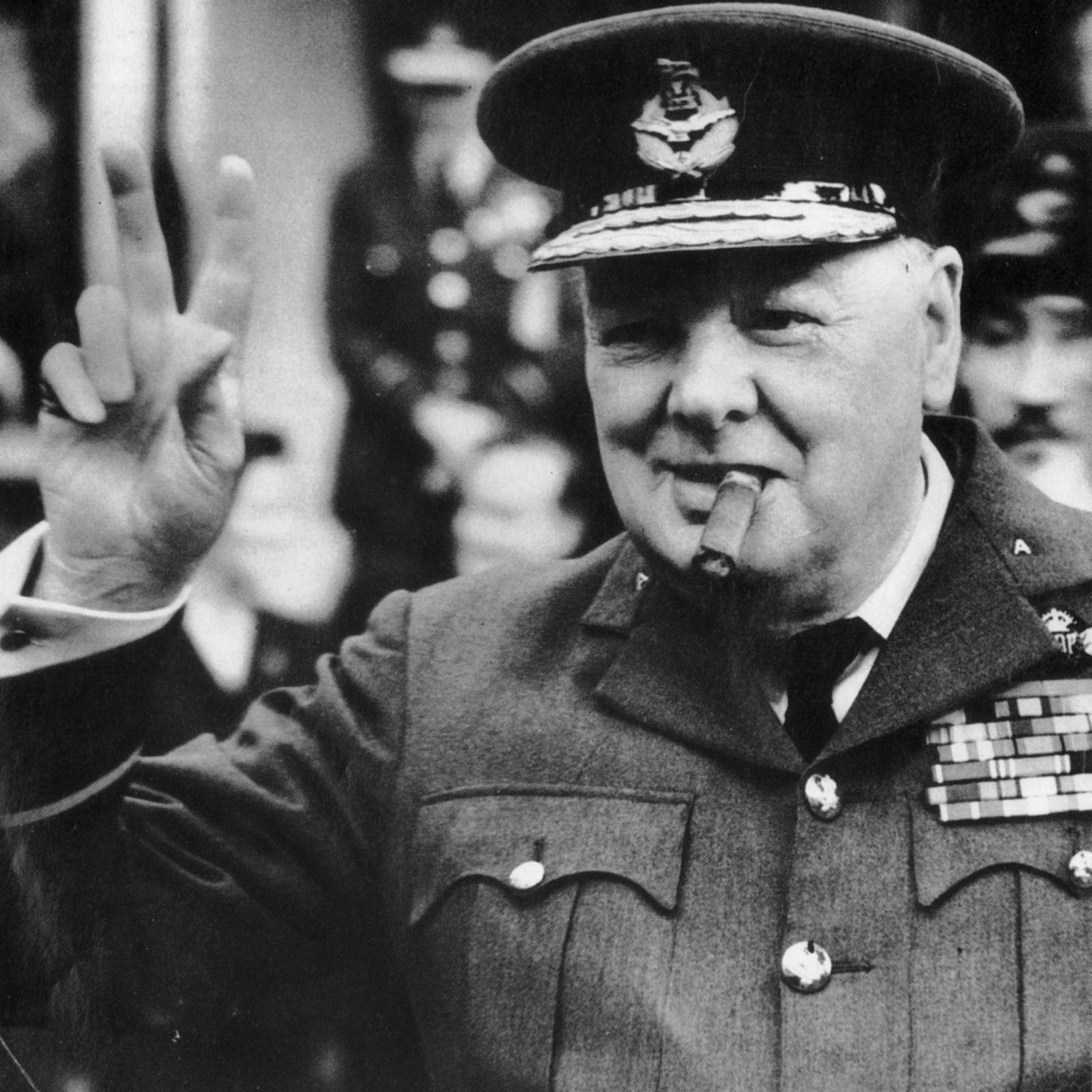
During the war, Churchill was well known as a visible leader and visibility is key. He was often seen visiting factories, bombed houses, and talking to people. It was this alluring aura that consolidated the Britons. Some people whom Churchill interacted with said after; they can do just about anything! He knew the value of speech and though not a natural orator, he worked his skills and made his influence crawl from every corner of the Allied Forces.
Find more about improving your communication skills with DiSC psychometric testing
At its heart, communication is the real work of leadership. Because everyone hears things in different ways, it is up to the leader to communicate frequently and honestly, with openness and a commitment to listening as well as being heard. Your words have great power, so use them to inspire and support others.
Reputation
“It was the nation and the race dwelling all-round the globe that had the lion’s heart. I had the luck to be called upon to give the roar. I also hope that I sometimes suggested to the lion the right place to use his claws.”
Winston Churchill leadership
Churchill was an outspoken critic, and at one point he was accused of being a warmonger when he foresaw the imminent war coming to UK. He portrayed himself as a lone voice calling for rearmament against Germany in the early 1930’s
On the 3rd of September 1939, British declared war on Germany after it had attacked Poland. Churchill was appointed Prime Minister on May 1940.
When you’re a leader, your words, your actions, your behaviour are all being watched. People may doubt what you say but they will always believe what you do, so make sure your actions follow your words. Are you leading by example? People must be motivated to follow you before they will care about your vision.
Passion
“I felt as if I were walking with destiny, and that all my past life had been but a preparation for this hour and for this trial.”
Winston Churchill leadership
Churchill was a dedicated man. He was a war correspondent, a soldier, a writer and a statesman. He was passionate about the betterment of his country, regardless of his good and bad criticisms. And of course, more than passionate about winning the war as it would be shown later in his career.
He was also considered a great writer, publishing a lot of books such as The River War (1899), the biography of his father, Lord Randolph Churchill (1906), the story of his ancestry, Duke of Marlborough, and his Memoirs of the Second World War that covered six volumes. On the other hand, it is worth noting that Churchill took up painting as his pastime during the Second World War.
A leader’s attitude, negative or positive, is contagious. The best leaders go out of their way to stay positive even in negative and challenging times—and that positivity, spread among the entire team, has the power to create better outcomes. Are you as positive and enthusiastic as you would like it to be?
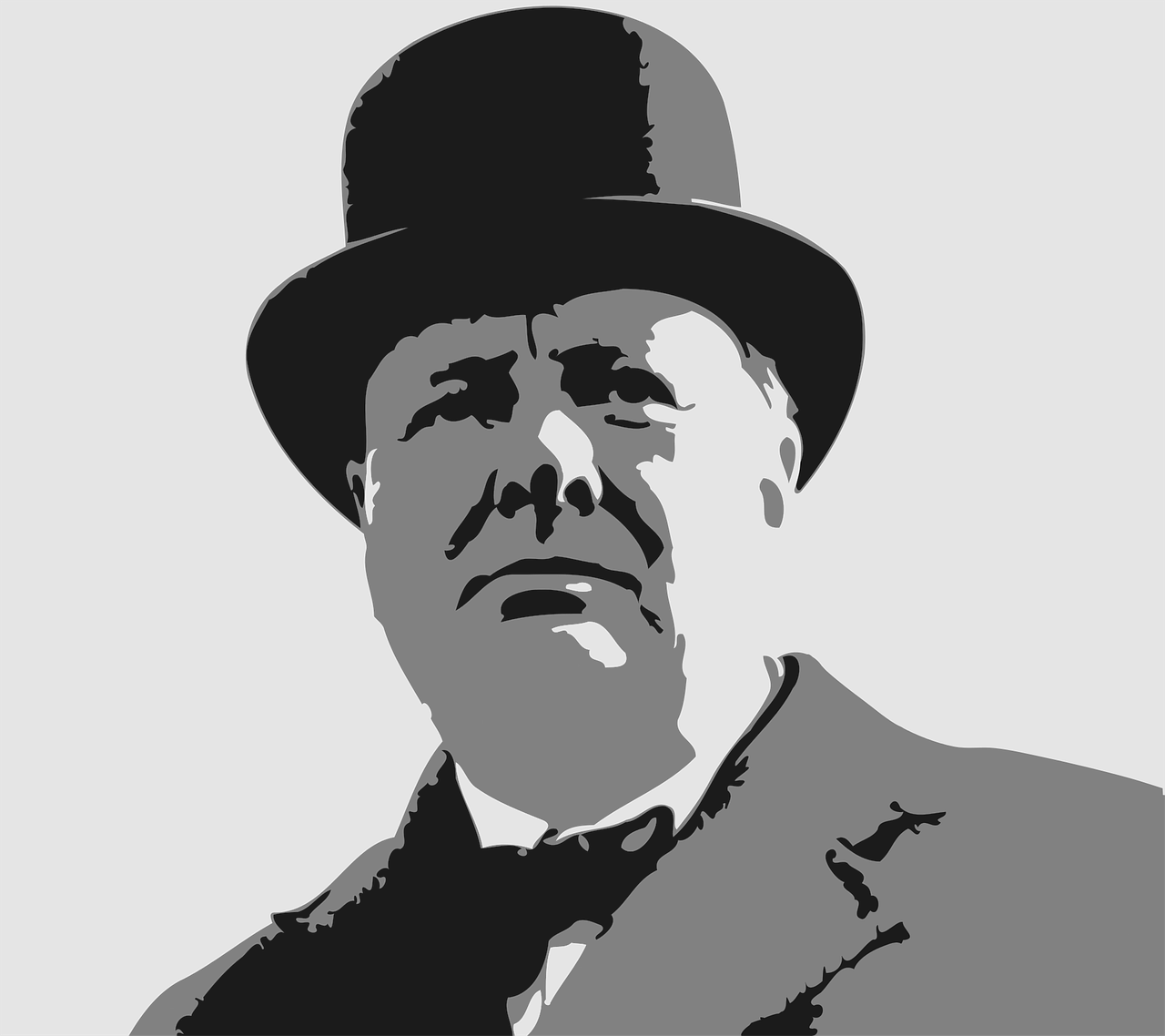
Vision
“You ask, what is our policy? I will say: It is to wage war, by sea, land and air, with all our might and with all the strength that God can give us: to wage war against a monstrous tyranny, never surpassed in the dark, lamentable catalogue of human crime. That is our policy. You ask, what is our aim? I can answer in one word: It is victory, victory at all costs, victory in spite of all terror, victory, however long and hard the road may be; for without victory, there is no survival.”
Winston Churchill leadership
Great leaders have visions and they are not shy of showing it to their followers. Having clear goals are as vital as any weaponry you bring to a battle, a powerful tool used in times of adversity and chaos.
Churchill’s vision: total victory. Ever wonder where that V-sign originated? He was one of the first advocates of it and used it to rally for Victory.
A great leader has the capacity to create a compelling vision and translate it into reality. When your vision is clear and understandable, it inspires others to help make it happen. Is your vision clear? Do others understand it? Have you inspired them to help you transform it into reality?
Courage
“Never give in - never, never, never, never, in nothing great or small, large or petty, never give in except to convictions of honour and good sense.”
Speech was given at Harrow School, Harrow, England, October 29, 1941
Considered to be the utmost skill any leader could have is courage. Churchill held one of the toughest posts during the Second World War; tougher still was the decisions he made to carry on until the very end of it.
When France surrendered to the Axis power, Britain stood alone to fight the war. In spite of this, Churchill didn’t waver. If he did, the whole nation of Britain will succumb to the power of Nazi Germany.
You don’t always have the time to make a perfect decision; in today’s fast-paced world, lengthy deliberation and debate are luxuries. In the middle of a situation, you have to be confident enough to quickly evaluate the situation and take an action that has a high probability of success. Great leaders know how to make decisions of all types. They know when to take the time to use analytical and thorough decision-making processes. They know when to engage the whole team, and when to make decisions on their own.
Action
“We shall not flag or fail. We shall go on to the end, we shall fight in France, we shall fight on the seas and oceans, we shall fight with growing confidence and growing strength in the air, we shall defend our Island, whatever the cost may be, we shall fight on the beaches, we shall fight on the landing grounds, we shall fight in the fields and in the streets, we shall fight in the hills; we shall never surrender…”
Speech in the House of Commons (4 June 1940)
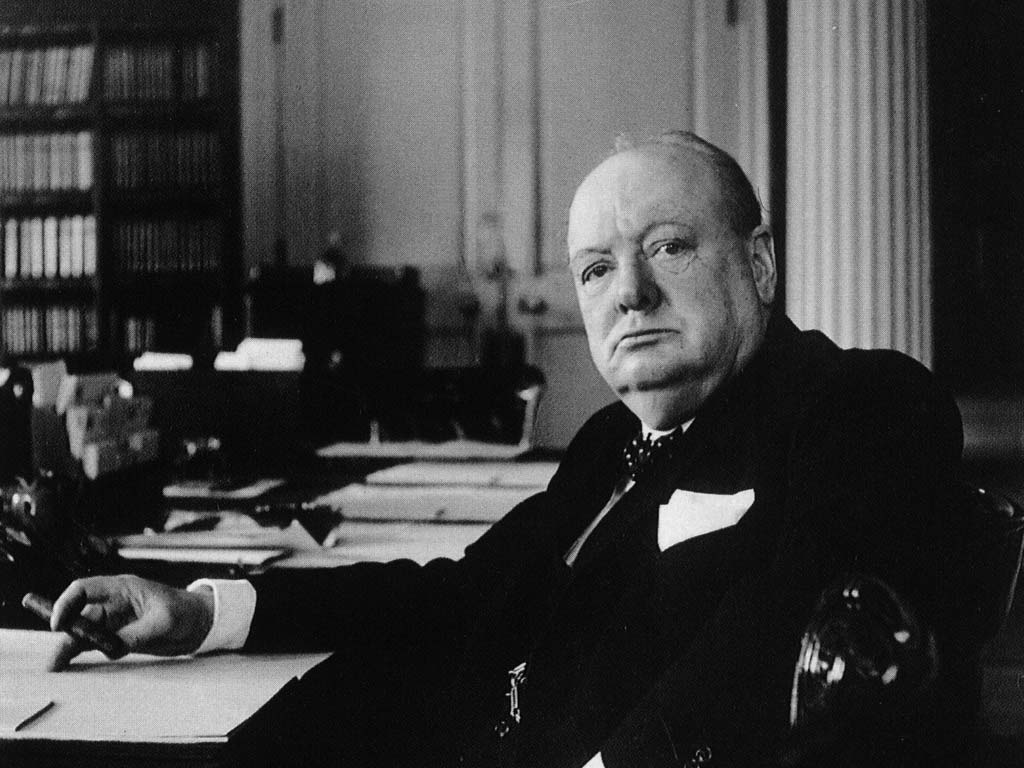
All characteristics of a great leader mentioned above would be meaningless unless put into action. Churchill didn’t stop working until the break of dawn. He will put a sticker on orders - “Action This Day”.
After the collapse of France, Churchill was concerned that the French would pass over their battleships to the Germans. As a result, he initiated the attack on the Battle of Oran, six ships were destroyed, and more than a thousand French naval servicemen died. This was a symbol as to how serious Churchill was to carry on, no surrender.
Sir Winston Churchill rose to the occasion to rally his nation, even if winning the war at one point was bleak.
He was a man of great bravery and optimism (another important trait of a manager). In times of despair, Britons looked up to him for reassurance.
He was an immovable wall, forever confident and forever protective.
Once you become a leader, your focus moves from your own development to helping others grow. When you do, you not only build a stronger team, but you communicate to members how much you value them. True leaders don’t create followers, they create more leaders.
Leadership exists in many forms in each one of us, we are not born with it, it is a learnable trait. Not all managers make good leaders and not good leaders make great managers. Leadership is a decision you make after learning the traits and becoming more aware of your Emotional Intelligence.
There are some, who can be called good leaders, and there are a few whom can be considered great, Sir Winston Churchill belongs to the latter.
If you are interested in developing your leadership skills you maybe interested in our Leadership skills e-books
|
|
To sum up the six steps of Winston Churchill leadership
- Communication
- Reputation
- Passion
- Vision
- Courage
- Action
It's interesting to think of where we would be now if we hadn't had Winston Churchill leadership during the war. Key lessons can be taken fron history and the six steps of the Winston Churchill leadership style are 6 of the best I have come across
Thanks for visiting our Winston Churchill leadership page, here's a link back to our homepage
Top of Winston Churchill leadership page
As well as lots of smaller businesses and organisations, below are examples of some larger organisations who have received training from our director of learning at Ultimate Leadership Training:









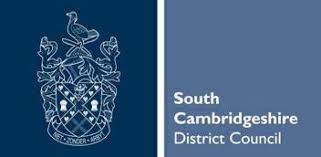



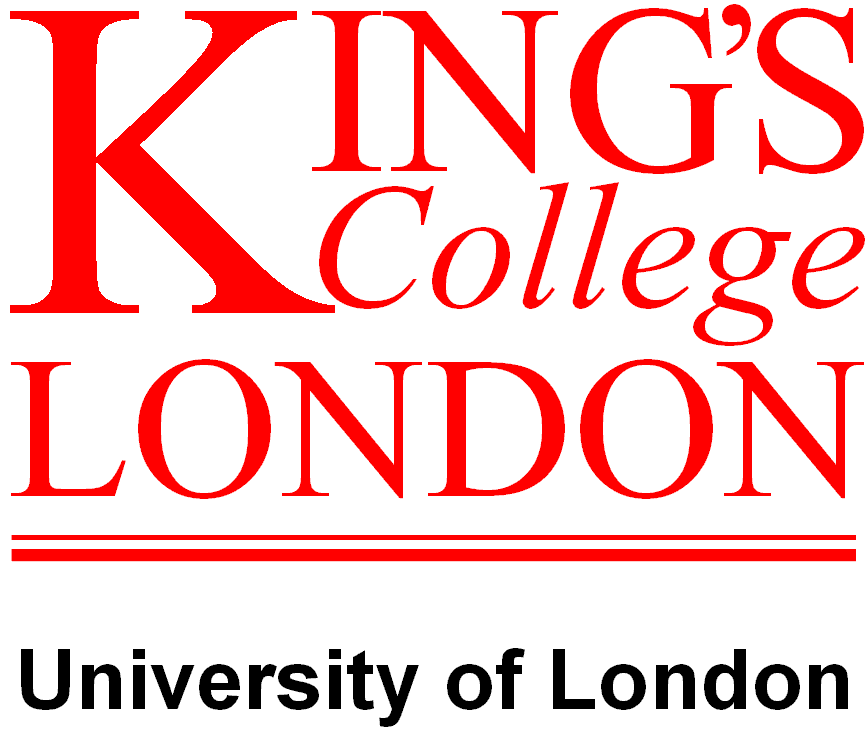





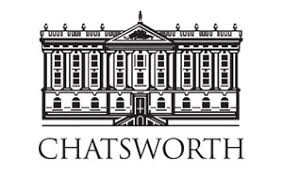




Please contact us to discuss any training requirements you have, we either deliver for you or sell you the course for your trainers to deliver to your team


